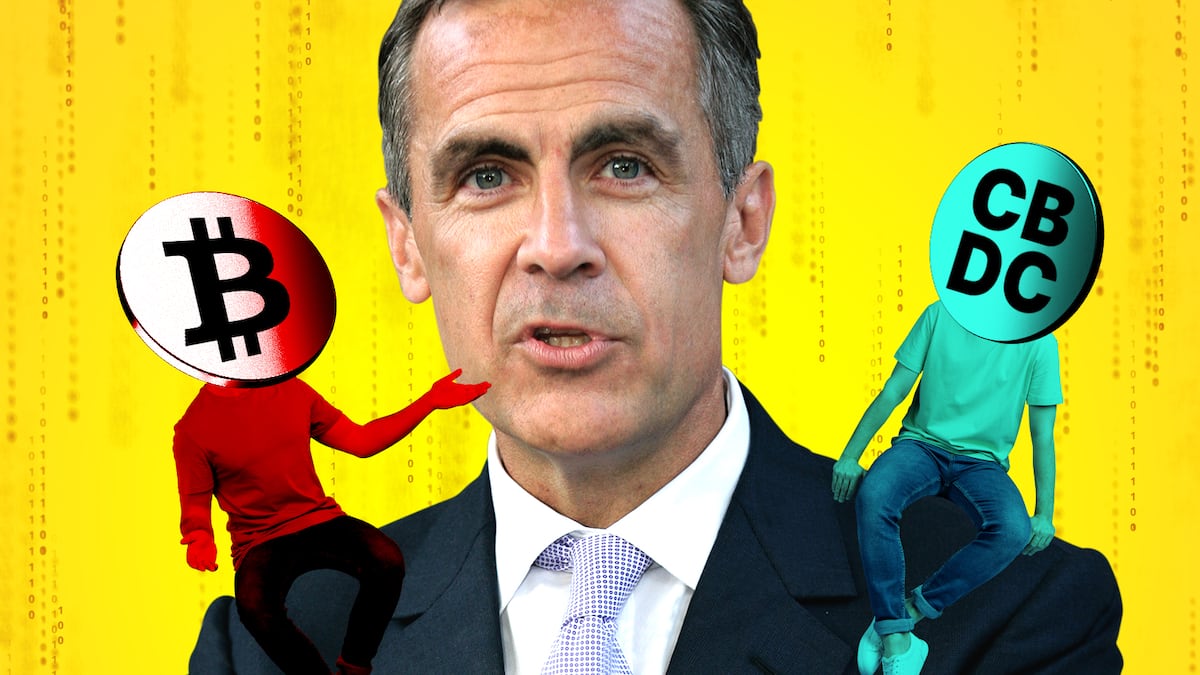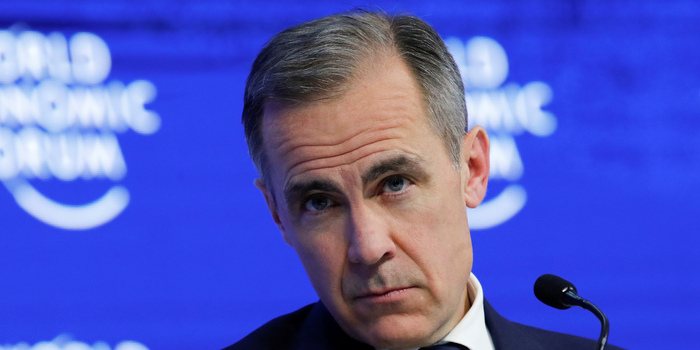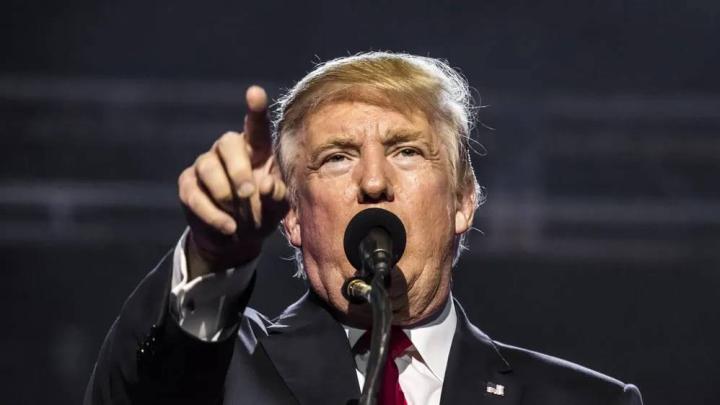On April 28, 2025, Mark Carney, the former governor of the Bank of Canada and the Bank of England, led the Liberal Party to an overwhelming victory in the Canadian election and became the 24th Prime Minister of Canada. The economist, known for his response to the global financial crisis, made a dramatic transition from the ivory tower of central banking to the turbulent changes in Canadian politics. Carney's victory was partly due to a surge in anti-Trump sentiment and his promise to make Canada a global leader in emerging technologies. However, for the cryptocurrency community, Carney's election raised a pressing question: How will his cautious and even critical attitude towards Bitcoin and decentralized finance shape the future of cryptocurrency in Canada?

A career forged in crisis
Mark Carney's path to becoming prime minister is both unconventional and impressive. Born in Fort Smith, Northwest Territories, Canada, and raised in Edmonton, Alberta, Carney has his roots in Canada, but his career has spanned the globe. Carney holds a degree in economics from Harvard University and a doctorate from Oxford University. He started his career at Goldman Sachs, where he worked in New York, London, and Tokyo for 13 years, accumulating experience in navigating complex financial systems.
In 2003, Carney joined the Bank of Canada as deputy governor, and in 2008, at the age of 42, he was appointed governor, leading Canada to successfully respond to the global financial crisis. He introduced innovative policies such as emergency lending facilities and forward-looking interest rate guidance, protecting the Canadian economy from the worst shocks. In 2013, Carney became the first non-British governor of the Bank of England, responding to the chaos of Brexit and the early stages of the COVID-19 pandemic. His calm and data-driven leadership style earned him the reputation of a "rock star in the central bank world", a title that has followed him back to Canada.
After leaving the central bank, Carney turned to a role that combined finance and social impact, serving as chairman of Brookfield Asset Management's transformation investment department and serving as the United Nations special envoy for climate action and finance. In 2024, he began to provide economic growth advice to then-Prime Minister Justin Trudeau, paving the way for his own political ambitions. In January 2025, Trudeau resigned due to plummeting approval ratings and the threat of a trade war with the United States. Carney seized the opportunity and won the leadership of the Liberal Party with an astonishing 85.9% of the votes. His campaign centered on fighting Trump's tariffs and strengthening Canadian sovereignty, deeply touching the country's anxious citizens due to external pressure.
Carney’s Caution on Cryptocurrencies: A Central Bank Perspective
Mark Carney's views on cryptocurrencies, and his stance on Bitcoin in particular, are deeply rooted in his decades of experience as a central banker. In his view, the stability of the financial system and the centralized control of monetary policy are the cornerstones of economic operation, and decentralized cryptocurrencies pose a challenge to this framework. Back in 2018, Carney gave a speech at the Scottish Economic Conference, clearly pointing out that Bitcoin has "serious flaws." He believes that Bitcoin's fixed supply of 21 million coins will lead to deflationary tendencies, making it difficult to use as a stable store of value or a reliable medium of exchange. He further elaborated in a question-and-answer session at Regent's University London: "Bitcoin has almost completely failed in the functions of traditional currencies." He was particularly critical of its wild price fluctuations, pointing out that the price of Bitcoin plummeted from nearly $20,000 to below $3,000 between 2017 and 2018, highlighting its unsuitability as an everyday trading tool.
Carney's criticism is not limited to Bitcoin's technical flaws, but also involves its social and economic impact. In an interview with Bloomberg in 2018, he said that Bitcoin's anonymity makes it a hotbed for money laundering and illegal transactions, threatening the integrity of the financial system. He warned that the disorderly expansion of the cryptocurrency market could trigger systemic risks, similar to the out-of-control of the financial derivatives market before the subprime mortgage crisis. In addition, Carney also expressed concerns about the rise of stablecoins. In a speech to the Bank for International Settlements in 2021, he pointed out that stablecoins backed by technology giants (such as Libra, which Facebook planned to launch at the time) could lead to the dispersion of liquidity in the monetary system and even weaken the monetary sovereignty of central banks. He believes that the centralized nature of stablecoins-controlled by a few companies-not only fails to solve the volatility problem of decentralized cryptocurrencies, but also introduces new governance risks.
At the same time, Carney has always been a staunch supporter of central bank digital currencies (CBDCs). He believes that CBDCs can not only provide the convenience of digital payments, but also ensure financial stability and regulatory transparency through centralized management. In a speech in 2020, he proposed: "CBDCs can enhance the transmission efficiency of monetary policy while reducing the risks posed by private cryptocurrencies." He particularly emphasized that CBDCs can combat illegal financial activities through traceable transaction records while providing consumers with lower transaction costs than existing payment systems. Carney's position is consistent with global central bank trends, such as the People's Bank of China's digital yuan trial and the European Central Bank's digital euro plan.
However, Carney's complex attitude towards cryptocurrencies is not completely negative. During his tenure as a member of Stripe's board of directors from 2021 to 2025, the company launched a cryptocurrency-enabled payment solution that allowed merchants to accept digital assets such as Bitcoin. This shows that Carney at least recognizes the potential of cryptocurrencies in specific business scenarios to a certain extent, but the premise is that they are strictly regulated. Carney once said at a fintech conference in 2021: "Blockchain technology itself has revolutionary potential, but its application must be in the public interest." This stance reflects his balance between support for technological innovation and reservations about the idea of decentralization. He may be more inclined to use blockchain technology for controlled scenarios such as supply chain management, cross-border payments or digital identity verification, rather than the anarchic cryptocurrency ecosystem.
Carney’s central bank background makes him extremely sensitive to the risks in financial markets, which to some extent explains his cautious attitude towards cryptocurrencies. As a policymaker who has dealt with the global financial crisis and Brexit, he is well aware of the chain reactions that financial innovation may bring. In his speech to the British Parliament in 2019, he mentioned: “The rapid development of cryptocurrencies requires a globally coordinated regulatory framework, otherwise it may repeat the mistakes of the 2008 financial crisis.” This systematic thinking makes him more inclined to incorporate digital finance into the existing financial system rather than allowing it to grow wildly outside of regulation.
Cryptocurrency's "shackles": Where does Canada go from here?
Carney’s premiership could bring a cautious and strict regulatory environment to Canada’s cryptocurrency industry. Unlike Conservative leader Pierre Poilievre, who openly supports cryptocurrencies and criticized Trudeau’s anti-crypto policies, Carney’s campaign platform emphasizes “prudent” innovation. Morva Rohani, executive director of Canada’s Web3 Council, told Cointelegraph that cryptocurrency is unlikely to become a major election issue, with more pressing issues such as housing, affordability, and Trump’s tariffs taking the lead. However, Carney’s past comments suggest that digital finance will not be ignored—it will just be strictly regulated.
First, Carney may promote the development of CBDC. His long-standing support for the Canadian digital dollar echoes the Bank of Canada's ongoing CBDC exploration. Unlike the decentralized nature of Bitcoin, CBDC will give the government full regulatory power over transactions, which worries cryptocurrency purists. With the memory of the Trudeau government freezing bank accounts and crypto transactions during the truck driver protests in 2022 still fresh, Carney's ideological alignment with Trudeau on the issue of CBDC may exacerbate public doubts about cryptocurrencies.
Second, Carney’s promise to make Canada a leader in “AI, technology, and digital industries” could provide an opportunity for blockchain innovation, but only if it is strictly disciplined. His platform emphasizes AI-driven economic reforms, which could complement blockchain’s potential for secure, transparent data management. However, any blockchain development is likely to take place through a regulated, government-approved framework, and decentralized protocols such as Bitcoin and Ethereum could be marginalized. Users on the X platform such as @JinJooWon echoed this sentiment, saying that Carney’s policies could “ignite blockchain innovation” but make “decentralization difficult.”
Third, Carney’s focus on responding to U.S. tariffs could limit cryptocurrencies’ growth. Trump’s trade war, including 25% tariffs on Canadian steel and aluminum and broader tariff threats, has raised recession fears. Carney’s response — tit-for-tat retaliatory tariffs and diversifying trading partners — shows a pragmatic and risk-averse stance. Against this backdrop, cryptocurrency’s volatility and regulatory uncertainty could be seen as a liability rather than an asset.

Carney vs. Trump vs. Trudeau: The Ice and Fire of Cryptocurrency
To understand Carney’s potential impact on cryptocurrencies, it’s important to compare him to U.S. President Donald Trump and former Canadian Prime Minister Justin Trudeau.
Donald Trump: The Antithesis of Pro-Crypto
Trump's second term, which begins in January 2025, has unexpectedly turned to support for cryptocurrencies. He signed an executive order banning US dollar CBDCs while establishing a strategic reserve of Bitcoin, in stark contrast to his position in his first term. Trump's support for cryptocurrencies as a tool to fight inflation has inspired the enthusiasm of the US crypto community. His policies are in direct opposition to Carney's position and could create a rift in Canada-US relations.
Carney advocates for centralized control and CBDCs, while Trump embraces decentralization, which could attract crypto investment flows to the United States. Canadian crypto startups, which already face strict regulation, may find the United States more attractive. In addition, Trump's tariffs and annexation threats dominate Canada's political discourse, downplaying domestic issues such as crypto regulation. Carney is focused on responding to Trump's economic aggression and may not have the time to develop detailed crypto policies, further strengthening his conservative stance.
Justin Trudeau: Continuity and Transformation
Carney’s predecessor, Trudeau, was similarly skeptical of cryptocurrencies. In 2022, he denounced Poliev’s pro-crypto platform as “reckless.” The Trudeau government prioritized the development of a CBDC and froze crypto transactions during the 2022 trucker protests to curb protest funds. Carney’s views are highly consistent with Trudeau’s position on CBDC, but his experience in global finance and technocratic style set him apart.
Trudeau's crypto policy is reactive and driven by political crises, while Carney's policy may be more proactive and rooted in his central bank philosophy. His emphasis on artificial intelligence and technology suggests that he has a more strategic approach to digital finance, or integrating blockchain into government services while maintaining a decentralized distance. However, unlike Trudeau, who has served as a parliamentarian for many years, Carney lacks experience in elected politics and may not be as keenly aware of public sentiment, especially among young Canadians who support crypto policies.
The road ahead is long: the balance between innovation and control
Carney's cryptocurrency policy is likely to reflect his broader governing philosophy: robust, prudent, and stability-first. His skepticism of Bitcoin and decentralized finance stems from his central bank background, foreshadowing stricter regulation and the advancement of CBDCs in Canada's crypto industry. However, his commitment to technological leadership opens the door to blockchain innovation, provided it aligns with government priorities.
The challenge for the Canadian crypto community is to promote decentralization in a regulated environment. Carney's global vision and crisis management expertise make him a strong leader, but his top-down approach may clash with the bottom-up ethos of crypto. As one X user put it: "Digital finance will soar, and decentralization will struggle?" The question is not whether Carney will shape the future of Canadian crypto - he will - but whether he can find a balance between innovation and control.
Compared to Trump's pro-crypto policies and Trudeau's reactive measures, Carney's vision is both ambitious and cautious, a technocratic blueprint for the technological age. Whether this vision can enhance Canada's technological leadership or stifle its crypto potential remains to be seen. For now, the world's eyes are on Carney, the crisis-fighting banker, as he takes on his biggest challenge yet: leading Canada through the uncharted waters of trade wars, technological revolutions, and digital finance.







